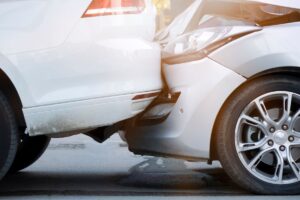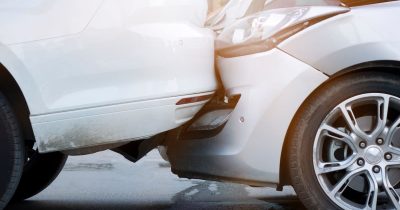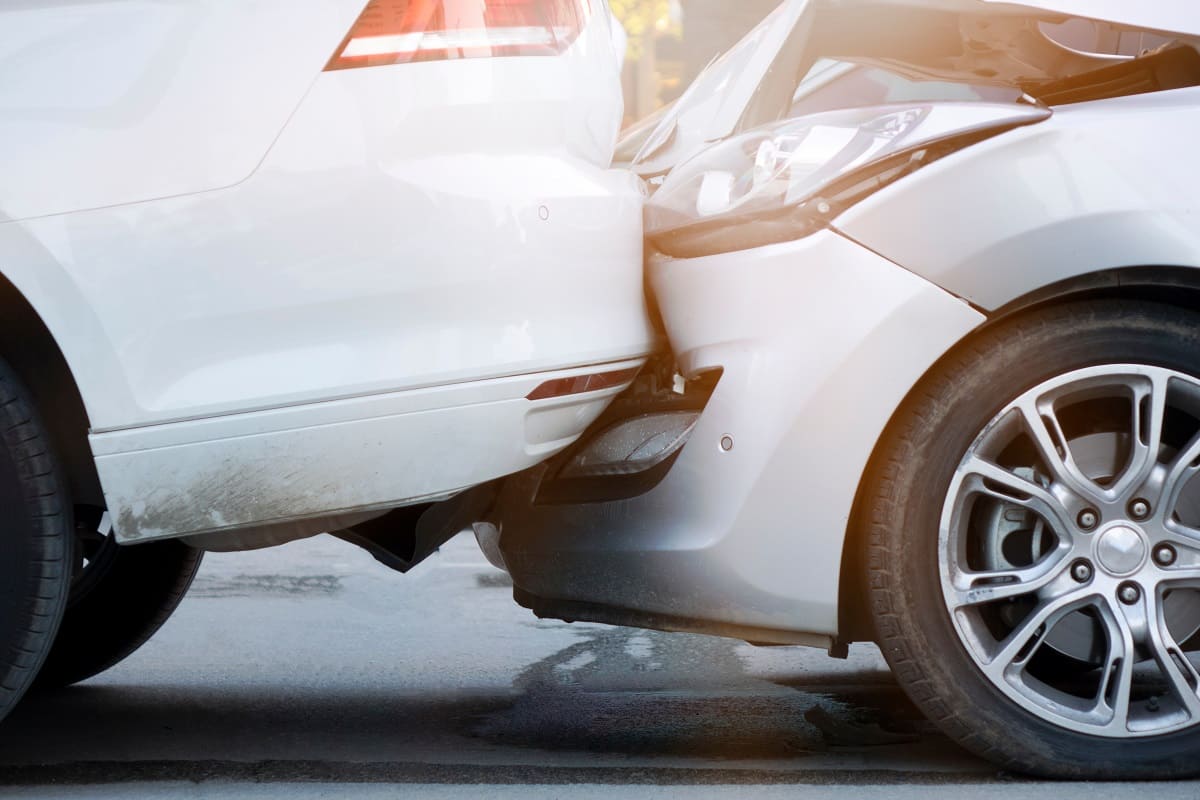An accident on the road happens quickly. If it is a company car accident, however, it becomes particularly tricky. Because this is where the questions usually arise: Who is liable for an accident involving a company car? And who pays for the costs? It is not only the degree of negligence that plays an important role, but also whether the accident involving a company car occurred during working hours or during private use. In this article, we clarify the question of liability in the event of an accident involving a company car and what employers should look out for.
Contents
Accident with company car: Who pays?
After a company car accident, it is particularly important to settle claims in the vehicle fleet quickly. Otherwise, there is a risk that operational processes will be disrupted and unnecessary costs will be incurred for the company. But the question quickly arises: Who pays?
As a rule, liability insurance covers damage to third-party property, such as the vehicle of the other party involved in the accident. Comprehensive insurance also covers damage to your own vehicle. Depending on the terms of the policy, an excess may be payable. The extent to which this must be paid by the employer or the driver depends on who caused the accident and whether the accident with the company car occurred during working hours or as part of a private journey.
As part of the owner’s liability, the employer must ensure that the vehicles are safe to operate and roadworthy and that the drivers have the necessary qualifications. For this reason, driving licenses must be regularly checked for validity and drivers must be trained as part of UVV driver training. However, employers usually delegate their owner liability obligations to a person in the company who is suitable in terms of expertise and character: the fleet manager.
Accident with company car during working hours
If there is an accident involving a company car during a business trip or on the way to work, the employer is usually liable. The relevant details can be set out in the company’s own company car policy in order to prevent misunderstandings and conflicts.
If the employee is not responsible for the accident with the company car during working hours, the opposing party’s liability insurance will cover the accident costs incurred. The situation is different if the company car driver caused the accident themselves. In this case, the degree of negligence open_in_new determines whether the employee or the employer is liable:
- Slight negligence: The employer is liable for the accident involving a company car.
- Medium negligence: In this case, liability is shared, with the employee paying an excess of between 500 and 1,000 euros under the fully comprehensive insurance and the employer paying the remaining costs. If no fleet insurance with fully comprehensive cover has been taken out for the company car, the amount to be paid by the employee depends on the total amount of the damage.
- Gross negligence: If the employee runs a stop sign or a red light, this constitutes gross negligence and the employee is fully liable for the damage. However, if the amount of the accident exceeds the income, the employer must pay a proportion of the damage incurred.
- Intent: Here too, the company car driver is fully liable for the company car accident.
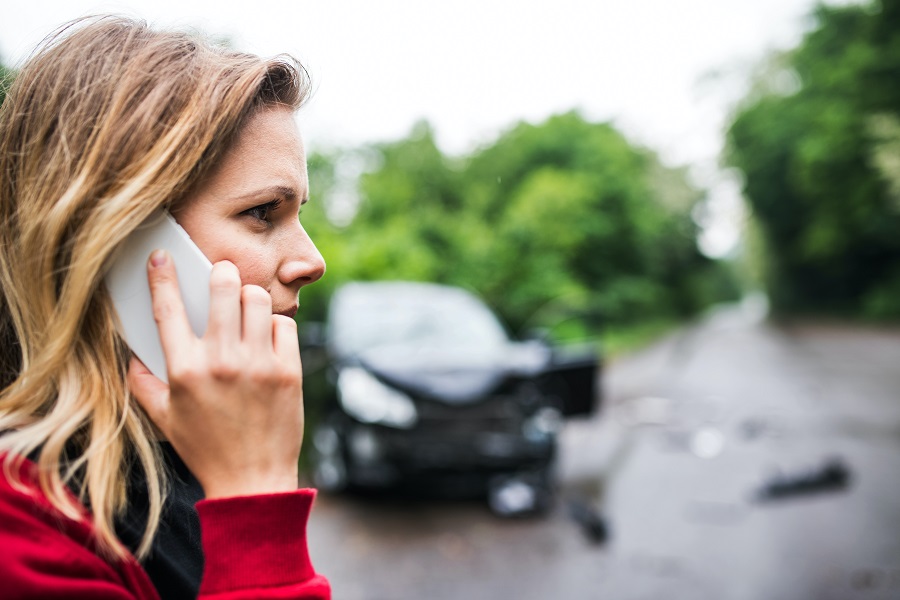
Accident with company car during a private trip
Many employers allow the private use of company cars, which results in a non-cash benefit. Employees must therefore pay tax on the company car in their tax return.
If a business car accident occurs during a private journey, the question of liability is not always clear-cut. If private journeys with the company car are clearly authorized and there is no gross negligence or even intent, the employer will in most cases cover the accident costs. However, the employer can set an excess for the employee. The amount of this should also be defined in a car policy in order to avoid disputes later on. In our article on company car policy templates, you will find the most important contents that should be included in a car policy.
If private use of the company car is prohibited and a company car accident occurs during such a journey, the employee may face consequences under employment law such as a warning or even dismissal.
From the legal basis to the most important obligations – find out more about the topic of keeper liability in our free guide: Keeper liability in the vehicle fleet
Deductible in the event of an accident with a company car while driving privately
The amount of the excess in the event of an accident involving a company car varies and depends on several factors, such as the company’s insurance policy, the type of damage and the company’s internal regulations regarding the use of company cars. A car policy should regulate who is responsible for the excess in the event of a company car accident during private use.
Preventing accidents with company cars: driver training according to UVV
To minimize the risk of accidents and damage to vehicles and increase driver safety, the law requires regular driver training in accordance with UVV. This teaches employees how to handle company vehicles safely and how to behave correctly in the event of an accident. The electronic driver training as an e-learning course is particularly useful, as it can be carried out flexibly online. The training content is already prepared and can be accessed immediately.
This should minimize the risk of an accident involving a company car and increase safety in the fleet. In particular, complete documentation of all driving license checks and driver training is necessary, as this serves as important evidence in the event of a claim.
Instruct employees safely?
Train your drivers at least once a year in the safe handling of vehicles in accordance with UVV. The best way to do this is via e-learning.
The most important facts about accidents with company cars at a glance
If the other party has caused an accident with a company car, their insurance will also cover the costs. If the employee is at fault, the degree of negligence determines who pays.
If the accident involving a company car occurs during working hours, the employer is usually liable. In the event of a company car accident during a private journey, it must be clearly defined in advance whether private use is permitted. Otherwise, it is a breach of contract and the employee may face consequences under employment law.
Drivers are trained in the safe handling of company cars and how to behave in the event of accidents by means of regular driver training in accordance with UVV. This increases safety in the fleet and minimizes the risk of accidents.
Further Fleet Knowledge
If you liked this article and would like to know more about this topic, we recommend these articles.

The company car: advantages, challenges and future prospects
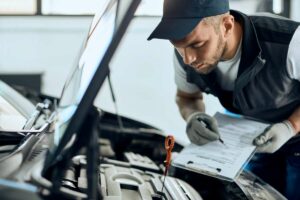
Workshop checklist: How to find the best workshop

